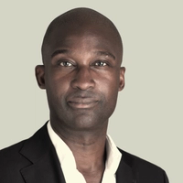 Edwin Remsberg / VWPics/Universal Images Group via Getty Images Edwin Remsberg / VWPics/Universal Images Group via Getty ImagesADDIS ABABA — Ethiopia’s plan to allow foreigners to buy real estate in the country for the first time is the latest move aimed at opening up its beleaguered economy and attracting foreign direct investment. Prime Minister Abiy Ahmed, who has sought to liberalize the country’s state-run economy since taking office in 2018, announced the policy shift on March 23. “We will introduce a law that will allow foreigners to own properties,” he said on state TV, but did not say when the proposed legislation would be brought to parliament. Ethiopia previously banned foreign property ownership based on political and economic concerns. The administration that followed Ethiopia’s socialist revolution of 1974, and held power until Abiy came to power, was wary of loosening controls due to fears over any outside influence on the country’s sovereignty. The country’s political history in recent decades, along with it being one of only two African countries never colonized by Europeans, left it out of step with other nations on the continent where real estate and lucrative franchises are often owned by a few powerful families and their foreign partners. There were also fears that opening the real estate market could work against locals, some of whom could be priced out of the market. Abiy had made some headway in loosening state control of the economy. For example, Ethiopia has invited international investors to take stakes in the telecoms and banking sectors in recent years, though that has had varying degrees of success. The impending change on foreign property ownership marks a seismic shift. “I think it has the potential to bring much needed forex into the economy,” Solomon Assefa, a local property developer, told Semafor Africa. “The luxury segment is already saturated and can use foreign buyers, but I don’t think Ethiopia is attractive enough for foreigners to procure houses compared to destinations like Dubai.” Much of Ethiopia’s attraction for foreign investors will stem from cheap labor and the state offering subsidized electricity. | 










